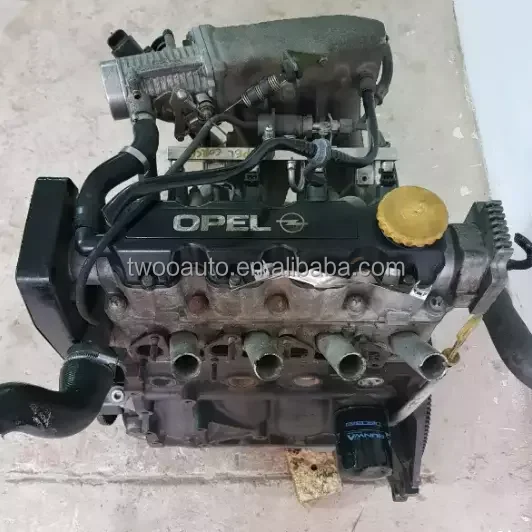Engine Acquiring Expert Tips on Choosing the Right Engine for Your Particular Demands
Choosing the right engine for your certain needs entails an intricate interplay of aspects that go beyond plain horsepower numbers. By diving into the ins and outs of power versus performance, evaluating fuel rankings, and budgeting for long-term prices, one can truly optimize their engine option.
Power Vs. Efficiency: Finding the Balance
When selecting an engine, it is important to strike an equilibrium in between power and effectiveness to satisfy your specific requirements successfully. Power refers to the engine's ability to create power for propulsion, determining elements like velocity, lugging capacity, and overall performance - Opel Corsa 1.4 Engine Price. On the other hand, effectiveness connects to just how well the engine utilizes fuel to produce power, impacting factors such as gas economic situation and ecological kindness
Achieving the best equilibrium in between power and efficiency is important since an engine that is also effective might eat excessive gas, causing higher operating expense and unneeded pressure on the atmosphere. Alternatively, an engine that focuses on efficiency over power may cause slow performance, particularly in demanding scenarios like towing hefty tons or driving uphill.
To make a notified decision, think about aspects such as your typical driving problems, the designated use of the lorry, and your personal choices. By reviewing your requirements and top priorities, you can choose an engine that strikes the excellent balance in between power and efficiency, guaranteeing optimum performance while lessening ecological impact and operating costs.
Recognizing Engine Size and Kind
To better fine-tune the choice process of an engine that strikes the optimal balance in between power and efficiency, it is vital to dive right into the ins and outs of comprehending engine size and type. Engine dimension refers to the total quantity of air and fuel that can be pushed via the engine cyndrical tubes.
Typical engine kinds include inline engines, V engines, and rotary engines, each with its one-of-a-kind benefits and disadvantages. Understanding the interplay between engine size and type is crucial in selecting an engine that aligns with your details requirements and priorities, whether it be power, effectiveness, or a balance of both.

Consider Your Vehicle's Needs
Considering your lorry's requirements is a fundamental step in the engine choice process to ensure optimal efficiency and capability. It is important to review factors such as the planned use the vehicle, its weight, lugging ability, and fuel effectiveness requirements. As an example, if you are looking for an engine for a sturdy truck that will be utilized for towing, you will need a powerful engine with high torque capacities. On the other hand, if you are selecting an engine for a portable cars and truck primarily utilized for city travelling, gas efficiency might be a much more important factor to take into consideration.
Furthermore, the surface on which the lorry will primarily operate ought to influence your engine selection. If you often drive in hilly or uneven locations, a robust engine with great climbing up power will certainly be required. Conversely, for flat terrains, an extra fuel-efficient engine may be adequate. By lining up the engine requirements with your automobile's requirements, you can ensure that your automobile runs efficiently and fulfills your efficiency expectations.
Reviewing Gas Efficiency Scores
Examining gas efficiency rankings is a vital facet of choosing the ideal engine for your automobile, guaranteeing expense financial savings and ecological sustainability. Gas performance ratings, usually determined in miles per gallon (MPG) for gas engines or kilowatt-hours per 100 miles (kWh/100 miles) for electrical engines, show just how far an automobile can take a trip on a particular amount of fuel or electrical power. Greater MPG or lower kWh/100 miles worths symbolize extra efficient engines, translating to minimized fuel costs and lower carbon discharges.
Additionally, compare different engine choices within the same automobile course to identify the most economical choice. Variables such as engine dimension, weight, aerodynamics, and crossbreed or electrical abilities can all influence gas performance.
Budgeting for Long-Term Prices
Tactically intending for long-lasting expenses is imperative when choosing an engine, ensuring monetary sustainability over the lorry's life expectancy. While the preliminary acquisition price of an engine is a significant variable, it is important to take into consideration the long-lasting costs connected with upkeep, repairs, and gas intake.
Furthermore, investigating the accessibility and cost of replacement components for the selected engine is vital in budget preparation. Engines with affordable and conveniently offered parts can dramatically impact long-term upkeep expenditures. Furthermore, thinking about the engine's toughness and expected life expectancy can assist prevent unanticipated replacement prices in the future. By very carefully budgeting for these long-term expenditures and factoring them right into the decision-making procedure, individuals can select an engine that internet not just fulfills their immediate needs but additionally remains economical throughout its life expectancy.
Verdict
To conclude, choosing the ideal engine for your certain demands requires balancing power and effectiveness, comprehending engine dimension and type, considering your car's demands, reviewing fuel effectiveness scores, and budgeting for long-term prices. By carefully thinking about these variables, you can guarantee that you select an engine that fulfills your requirements and supplies ideal performance for your car.
To further fine-tune the choice procedure of an engine that strikes the optimum equilibrium in between power and efficiency, it is crucial to dig right into the ins and outs of comprehending engine dimension and kind. Engine dimension refers to the total quantity of air and fuel that can be pressed through the engine cyndrical tubes. Typical engine types include inline engines, V engines, and rotary engines, each with its unique advantages and disadvantages. Understanding the interplay between engine size and type is vital in picking an engine that aligns with your particular requirements and concerns, whether it be power, efficiency, or a balance of both.

Comments on “Discover the Best Opel Corsa 1.4 Engine Price for Your Vehicle at Automobile Parts Shop”